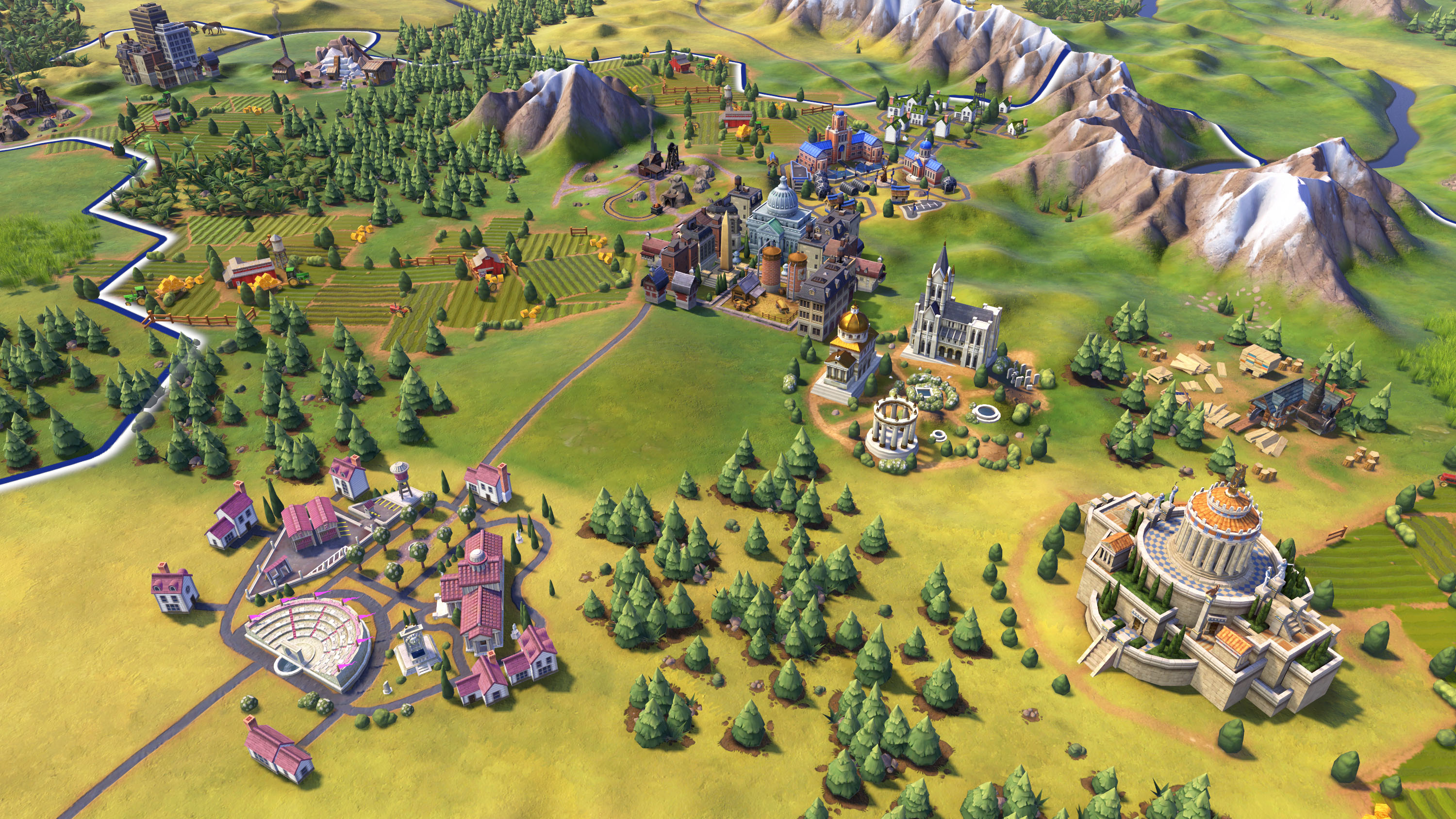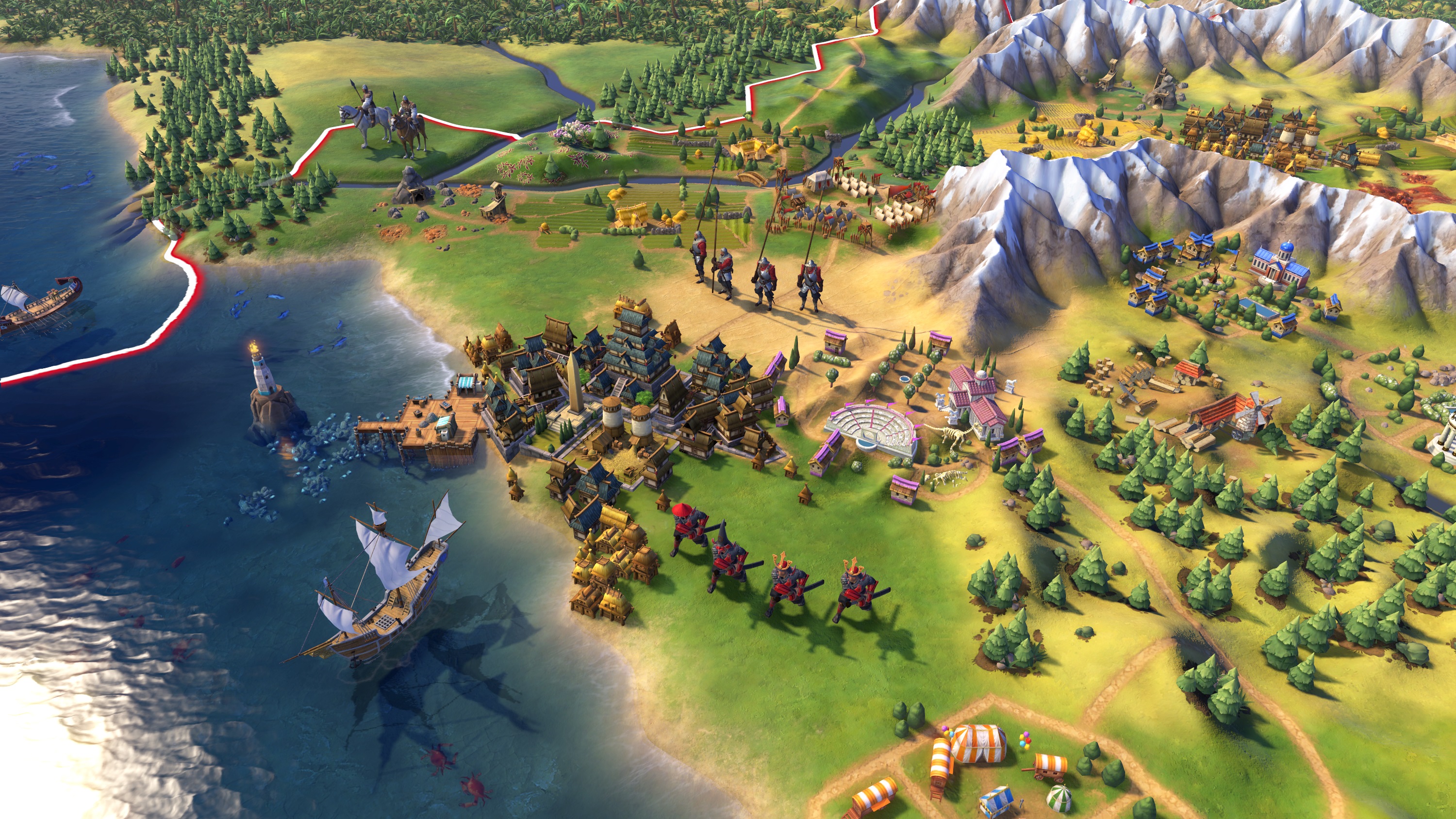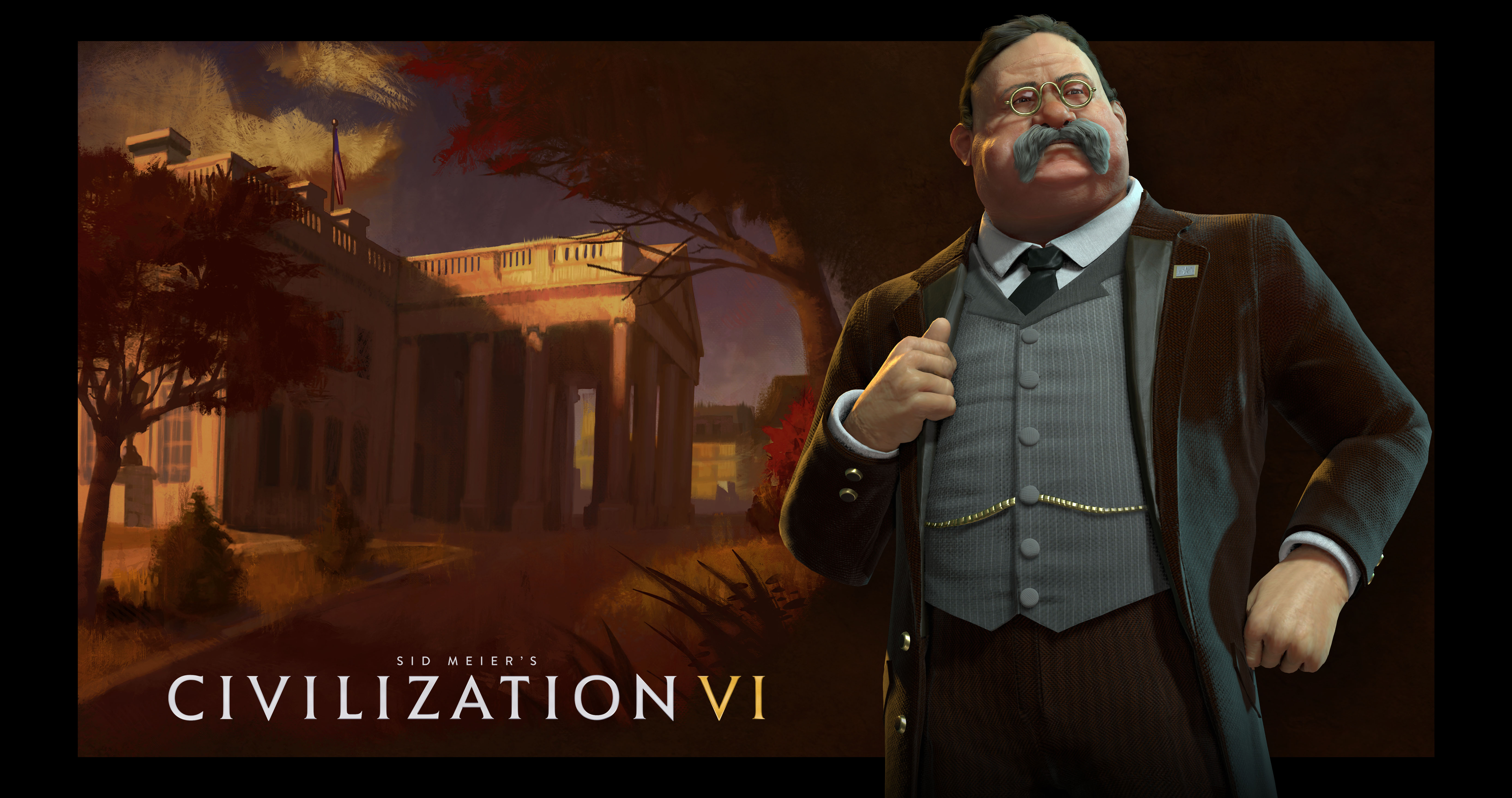A New Strategy: 'Civilization VI,' Hands On

Two weeks after Firaxis Games revealed Civilization VI, the development studio, along with its publisher, 2K Games, invited me to Santa Monica for a sneak preview of the next chapter in the popular strategy series. Like its numbered predecessors, this game keeps some of the series’ foundational mechanics. However, it also introduces new concepts that will shake up your Civilization stratagem, and I had just 60 turns to see what it has to offer.
A New Look
The first and most obvious change is its look. According to senior producer Dennis Shirk, the new graphics for the game were a combination of past titles such as the color palette of the mobile game Civilization Revolution, the look of cities from Civilization IV, and the overall detailed assets from Civilization V.
Instead of a series of clouds that signaled the fog of war in Civilization V, Firaxis took a page from the Age of Exploration, a time when European ships explored and mapped out parts of the world. In this spirit, the fog of war is represented by map-like sketches on areas that are either unexplored or not populated by one of your units.
Perhaps the most interesting implementation coming to the game is the introduction of a day and night cycle. Unfortunately, it wasn’t available in the current build, but I did see a glimpse of it during the completion of one of my Wonders (more on that later).
The First Steps
For the demo, I played as the Chinese, and immediately after creating my first city, I noticed a new feature called Eureka boosts. These have the ability to reduce the number of turns for your current technology research project. However, these boosts take effect at certain moments throughout the life of your civilization such as discovering a natural Wonder like the Great Barrier Reef, meeting a new civilization, or creating your first city.
The same technology boost also works for certain units. For example, I had a ranged Slinger as one of the starting combat units. However, there was a better ranged unit available in the early stages of the game, and it's called the Archer. However, I couldn't use an Archer yet as I had to research the required technology first in order to recruit it into service. Normally, the Archery technology would take eight turns, but if I used the Slinger to kill an enemy unit or barbarian, I could reduce the number of turns required to research Archery, meaning that I could get a head start in constructing a powerful unit for future potential conflicts.
But back to my first city. Aside from assigning it a defensive unit, I began to build my first Worker, or Builder, as the game now calls these production units. Once it was built, I learned that I could no longer automate these Builders to make improvements to my city tiles. Instead, I had to manually assign them to a tile and build the best structure in that location to benefit my citizens.
Stay On the Cutting Edge: Get the Tom's Hardware Newsletter
Get Tom's Hardware's best news and in-depth reviews, straight to your inbox.
This allows you to tailor a city for a specific resource in its area, which makes finding the right tile to build your city much more important. You could have a city that’s focused on two major areas: gold and food production. This is where your specialized districts comes into play. It depends on the resources available in your general area.

If that wasn’t enough, the happiness of your citizens, which used to be measured on a global scale, is now reduced to each city. Your cities will have different levels of happiness based on your improvements to the area. Obviously, you’ll want to keep it high if you want to keep production up and avoid having your people revolt and join a different empire.
Remember those Builders that were creating a new improvement? These units no longer last for the entire length of the game. You have four Builders per unit, and once all four are used up, you have to build another one. It’s another way to keep you on your toes and keep lazy players, such as myself, from allowing the computer to run your affairs in each city.
Finally, there are the all-powerful Wonders. Unlike past games, you’ll actually have to sacrifice a tile in your city area for a Wonder. However, constructing one is more complicated than previous games because you'll need to meet certain requirements before you build a Wonder. For example, you can build the Pyramids only if they're constructed on a desert tile. Another example is Stonehenge, which requires a source of stone from your city in order to finish construction.
More than ever, the location of your city could be the difference between a flourishing metropolis or a mediocre source for resources. However, the rewards pay off. Once the Wonder is complete, you can watch a time-lapse shot of it slowly rising from the ground to resemble its familiar shapes.
Fighting The Unknown
As my warriors and scouts explored the foreign lands far from my borders, they eventually ran into barbarians, a constant nuisance in the early stages of the game. For the most part, Civilization IV and V players will be familiar with combat. A small UI card shows up at the bottom of the screen that shows details of your unit’s likelihood of succeeding in combat.
However, the method of promoting each unit changed with the new game. In the past, you could choose from the same set of bonuses for each unit, such as an attack bonus if it attacked from a forest tile or an increased chance of inflicting more damage to enemy cities. With Civilization VI, the types of promotions are different for each unit. For example, scouts might receive a bonus in their movement stats, whereas warriors receive an early advantage against barbarians.
The game also allows you to pair certain groups together. For example, you can have a warrior in an escort mode so that it travels with a settler on the same tile. You can also combine similar units to form a more powerful Corps army, but unfortunately I didn’t have enough time to see it in action.
Diplomacy And Domestic Affairs
It didn’t take long for me to stumble upon my first foreign power: the Americans, led by Teddy Roosevelt. We were told by the developers that each leader now has their own personality that reflects their real-world, historical counterparts. For example, Roosevelt’s “big stick” foreign policy is present in the game. He doesn’t want conflict on his continent, but he’s also not afraid to deploy his army if the situation arises.
In addition to this realistic personality, civilization leaders will also have a second, more secretive personality. You’ll need to spend some time observing each leader's relationship with other factions, or send spies to learn more information about the leader, in order to figure out their actual strengths and weaknesses.

City-states also make a return to Civilization VI. This time around, you’ll need to send envoys to these small empires in order to convince them to trade with your people and provide units during wartime.
Instead of the Social Policies from Civilization V, you’ll now have to pick various Civic cards to determine your empire’s policy on certain issues.Just like technology, you’ll have to research these new Civics, and you can also receive boosts throughout the game that reduce the cost required to discover a new policy.
You’ll have to play a Civic card in four categories: military, economic, diplomatic and wildcard. With this new approach, Shirk said that it provides a fair chance to win through Culture points as opposed to military might or the highest research score. By using the right cards and discovering enough Civics, you could easily be the cultural envy of the world.
The Road Ahead
Obviously, this pre-alpha demo was just an early glimpse of what to expect in Civilization VI, and some features can change before the final release. However, what I saw in the game was interesting, to say the least.
For the past three Civilization titles (I’ve played Civilizations III, IV and V), I stuck to the same strategy for constructing my civilization with small deviations in the later phases of the game. With Civilization VI, I felt like I was learning the game all over again. With new city mechanics, the introduction of finite Builders, and additional diplomacy features, I was forced to change the way I approached the game.
Some might see that as an unpleasant change, but for me, it’s refreshing to see the game take this route of adding more strategy with each move. This way, I become a better player. I might fail the first one or two attempts, but I'll eventually learn from my mistakes and build a civilization that stands the test of time.
Follow Rexly Peñaflorida II @Heirdeux. Follow us @tomshardware, on Facebook and on Google+.
-
AndrewJacksonZA "You have four Builders per unit, and once all four are used up, you have to build another one."Reply
Please don't do this. Or at least make it optional.
"each leader now has their own personality that reflects their real-world, historical counterparts."
Please keep Gandhi as the ultimate warmonger. No, I'm serious! :-)
-
problematiq Who here remembers Civ 1? I still have the CD with "Mantis experimental fighter" with it :) the combat system was soo broke in that Civ, losing tanks to swordmen. I'm much looking forward to Civ 6, though If it sucks i'll just play Civ 5 :)Reply -
Colin_10 This is one of those games I have played hundreds of hours on civ 4/5 and makes me wish I was still young enough to have full days to devote to a nice long marathon game with friends.Reply -
dudmont I only ever played Civ1 on other people's systems. Didn't play it enough to get far into it. I still have my Civ2 cds. Played that a ton. It had it's quirks. I liked the scenarios over the generic game(no mismatched eras). Loosing tanks to civil war era rifleman in good terrain was a touch odd.Reply -
msh0486 Reply"You have four Builders per unit, and once all four are used up, you have to build another one."
Please don't do this. Or at least make it optional.
I'd have to disagree. I always ended up with way more workers than necessary, and they just cut into my resources and unit count, so I always had to downsize after hitting a certain point in the game. I also hated the automation, I felt they were terrible at resource management and I always had to fix things they did on their own if I did happen to use automation. -
plattyaj "In addition to this realistic personality, civilization leaders will also have a second, more secretive personality"Reply
Hopefully randomized for each game. Otherwise the list will be online before the game has hit the shelves! -
plattyaj "In addition to this realistic personality, civilization leaders will also have a second, more secretive personality"Reply
Hopefully randomized for each game. Otherwise the list will be online before the game has hit the shelves! -
JustACitizen Please build a 64bit version this time. Escape the unnecessary 32 bit limitations.Reply